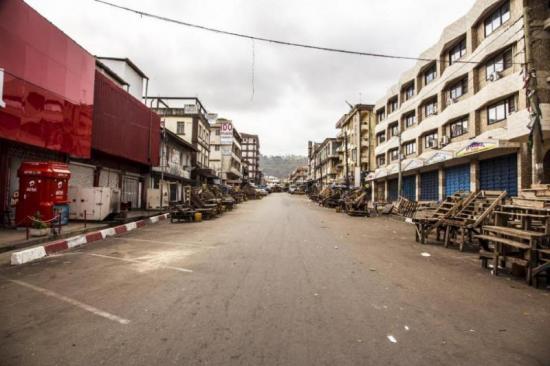ASSOCIATED PRESS by Sarah DiLorenzo April 2, 2015
(Scroll below for related Wall Street Journal story.)
DAKAR, Senegal (AP) — When will the world's largest and longest Ebola outbreak end? The West African countries of Sierra Leone and Liberia both appear to be on steady paths to ending the epidemic. The wild card is Guinea, where Ebola hasn't burned as hot but remains stubbornly entrenched.

In this file photo dated Friday, March. 27, 2015, a usually busy street is deserted as Sierra Leone enters a three day country wide lockdown on movement of people due to the Ebola virus in the city of Freetown, Sierra Leone. Sierra Leone's 6 million people were told to stay home for three days, except for religious services, beginning Friday as the West African nation attempted a final push to rid itself of Ebola. (AP Photo/ Michael Duff, FILE)
Liberia's last Ebola patient died March 27; it is now counting down the 42 days it must wait to be declared free of Ebola. Meanwhile, Sierra Leone recorded no new infections Wednesday for the second time; on average, it has logged a handful each day in recent days.
Recent Comments